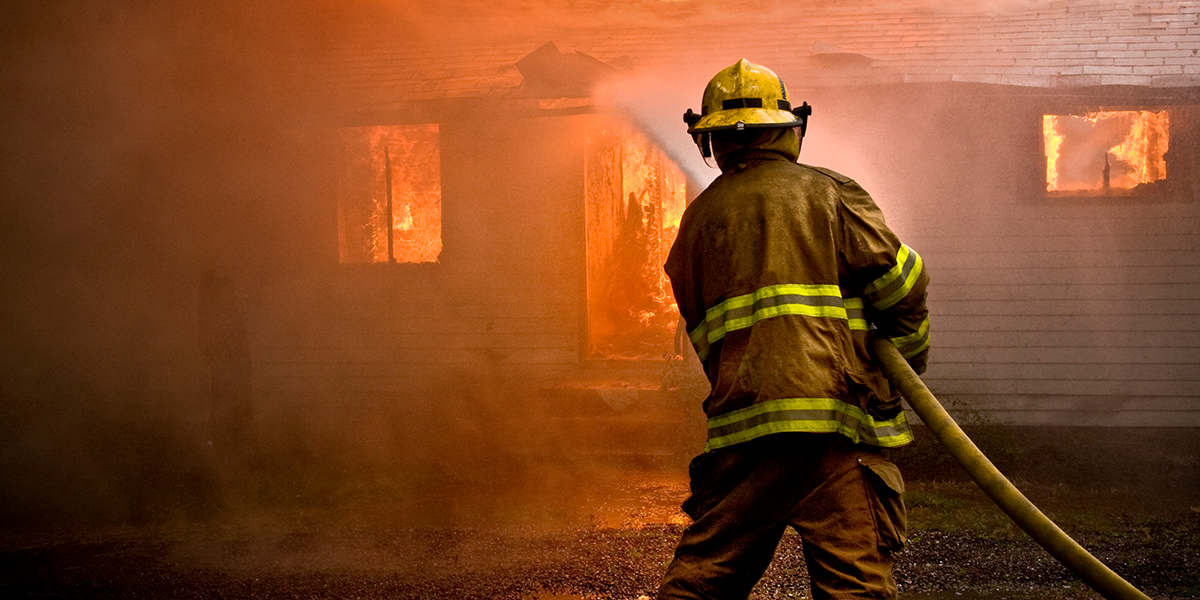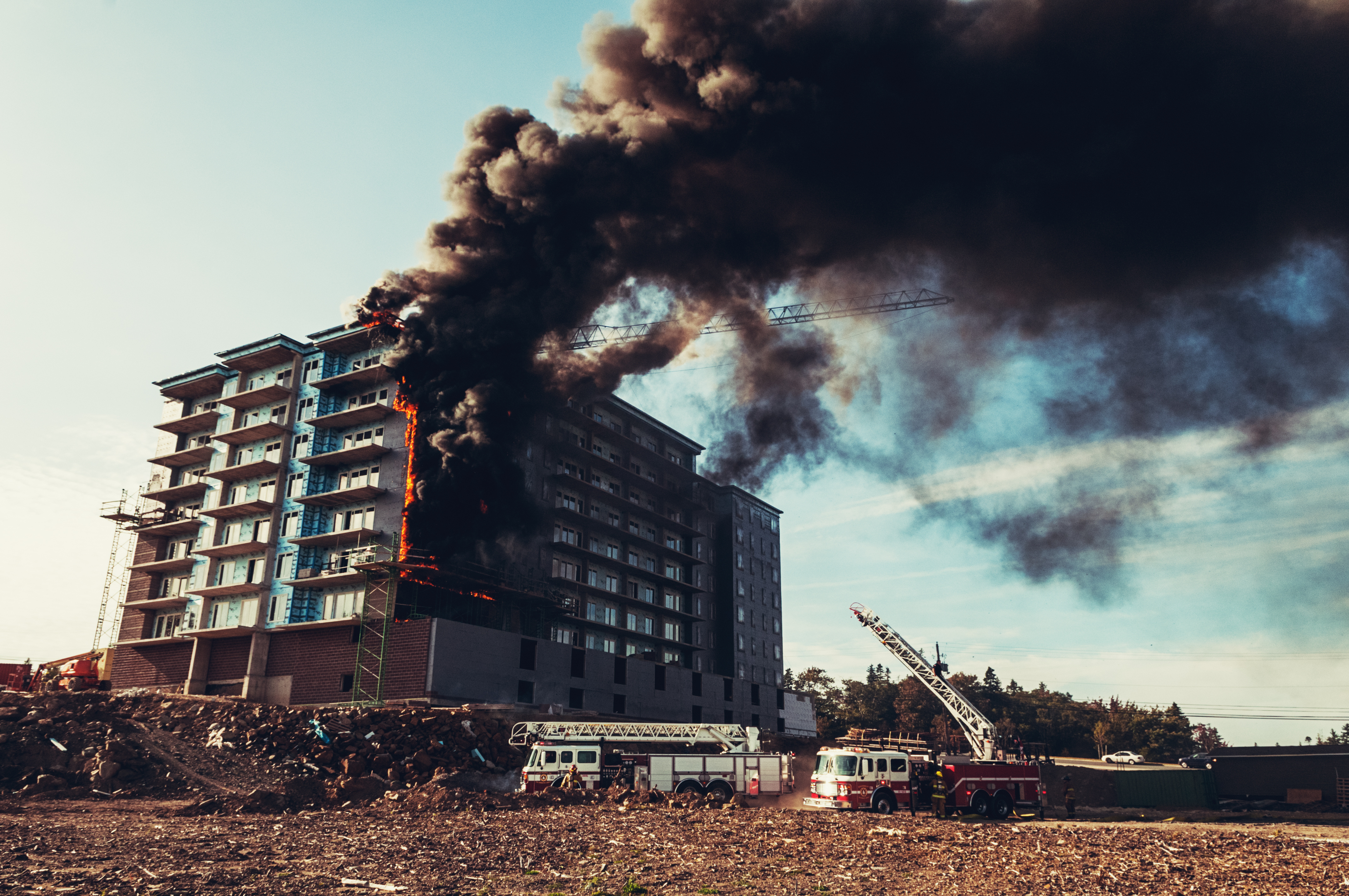Poverty conditions don’t inherently cause more fires, but they do create risk factors that make communities more vulnerable. The connection between poverty and elevated fire risk has been documented for decades, with research showing how socioeconomic conditions contribute to fire vulnerability. According to the National Fire Protection Association (NFPA), factors such as family stability, crowdedness, older housing, vacant properties, and limited English proficiency are strongly associated with increased fire risk.
Since 1967, between 15-20% of the U.S. population has lived at or near the poverty line. Because the population has grown, the number of people living in poverty has increased by over 34% between 2000 and 2017, with the number of poor residents in suburbs and exurbs doubling. Poverty-related housing issues, like unsafe electrical hookups, lack of smoke alarms, or reliance on candles, can directly increase fire hazards.
One study found that in Dallas, Texas, the risk of fire injury in the lowest-income census tracts was eight times higher than in the highest-income tracts. Another study showed that in communities where 20 percent or more of the population lived below the poverty line, the fire death rate was almost five times higher than in more affluent areas
These statistics underscore the need for targeted prevention programs. NFPA notes that community risk reduction (CRR) programs, such as smoke alarm installations and resident fire safety education, have been highly effective in lowering fire death and injury rates in high-poverty areas.
Free virtual event
On October 6, HAI Group’s Senior Risk Control Consultant, Nick Mayo, hosted a recorded training followed by a live Q&A to kick off Fire Prevention Week. The session covered key steps housing organizations should take after a fire and addressed common challenges property managers face, such as coordinating with fire departments, supporting displaced residents, and ensuring repairs meet safety and code requirements.
You can view the full session here.
Resources to help spread the word about fire safety
Local fire departments, with their understanding of neighborhood-specific hazards, are vital partners in prevention. Public and affordable housing organizations can also play a crucial role by offering fire safety programs for residents.
NFPA celebrates Fire Prevention Week in October with a different educational theme. This year’s theme—Charge into Fire Safety—highlights the importance of preventing electrical fires and staying proactive about fire hazards. NFPA offers free resources and family-friendly activities that housing organizations can leverage through handouts, on-site events, or social media outreach.
Likewise, HAI Group hosts an annual Fire Safety Poster Contest for member housing organizations, encouraging young people to participate in fire safety conversations creatively and meaningfully.
Focus fire safety education on positive outcomes
Educational interventions can be successful in spreading fire safety knowledge to parents and children, according to the NFPA. In one study, Philadelphia firefighters visited homes to install smoke alarms and provide escape plans. Four weeks later, children in those homes were significantly more aware of fire escape procedures than those in homes not visited.
Research also shows that framing messages around positive outcomes is more effective than focusing on negative consequences. A Johns Hopkins Center for Injury Research & Policy study, referenced in the linked report, found that children learned more when safety messages emphasized safe behaviors and when parents reinforced those messages directly.
For housing organizations, this highlights the importance of involving parents in fire safety education and focusing on clear, actionable steps that create safer outcomes.
Free fire safety resources
We provide free resources to help housing organizations and residents reduce fire risk:
- Housing Risk Guide: Fire-Related Water Damage
- Housing Risk Guide: Fire Protection for Buildings Under Construction
- Housing Risk Guide: Fire Safety in High-Rise Buildings
- Free Video: Cooking Fire Safety Tips to Protect Your Home and Community
To learn more about Fire Prevention Week and explore educational materials from NFPA at https://www.nfpa.org/events/fire-prevention-week
Contact our Risk Control and Consulting team for more resources and answers to your housing organization’s risk-related questions.
Interested in working with HAI Group? Our Account Services team is ready to assist you.
This article is for general information only. HAI Group® makes no representation or warranty about the accuracy or applicability of this information for any particular use or circumstance. Your use of this information is at your own discretion and risk. HAI Group® and any author or contributor identified herein assume no responsibility for your use of this information. You should consult with your attorney or subject matter advisor before adopting any risk management strategy or policy.
HAI Group® is a marketing name used to refer to insurers, a producer, and related service providers affiliated through a common mission, management, and governance. Property-casualty insurance and related services are written or provided by Housing Authority Property Insurance, A Mutual Company; Housing Enterprise Insurance Company, Inc.; Housing Specialty Insurance Company, Inc.; Housing Investment Group, Inc.; and Housing Insurance Services (DBA Housing Insurance Agency Services in NY and MI).







